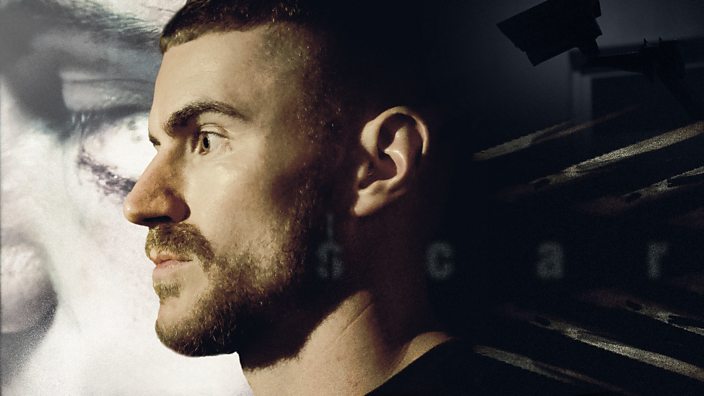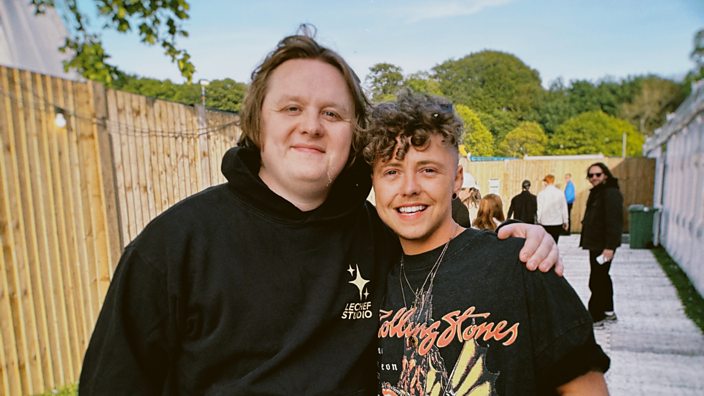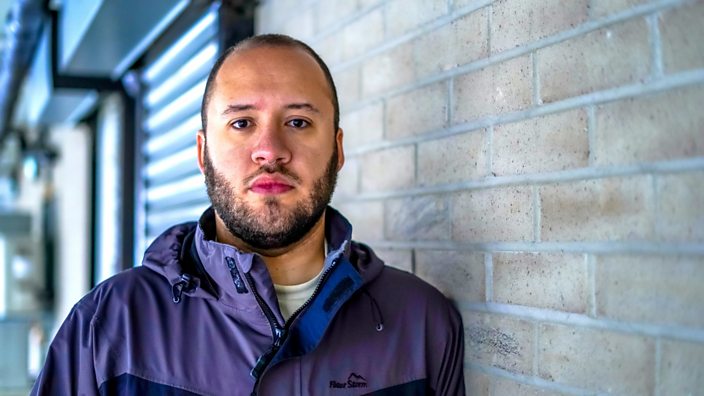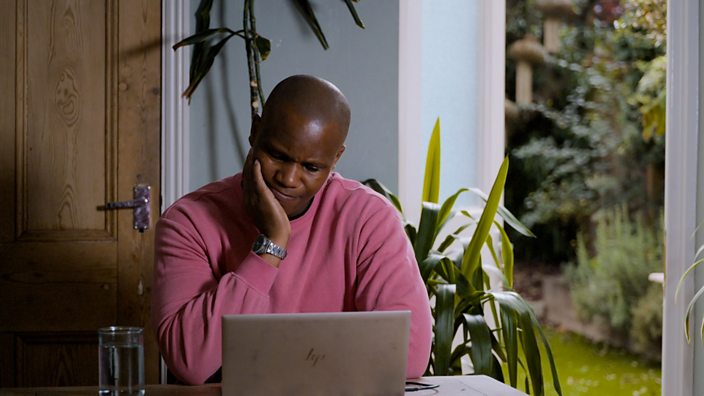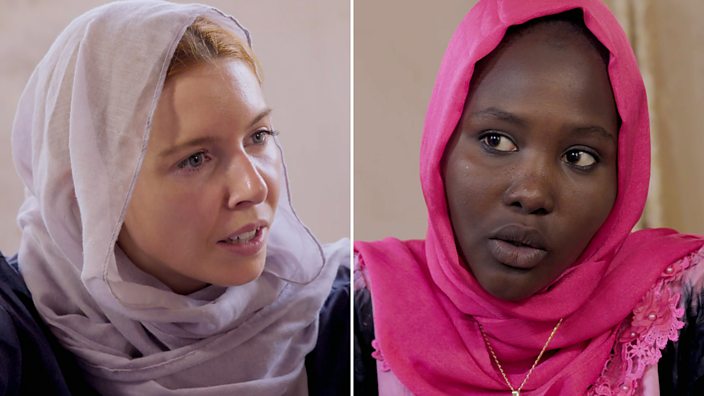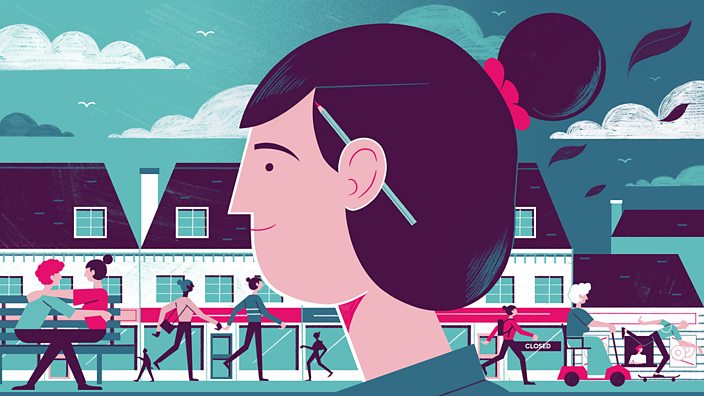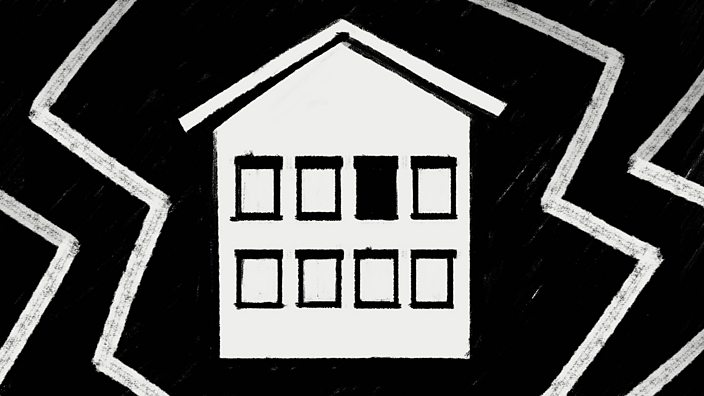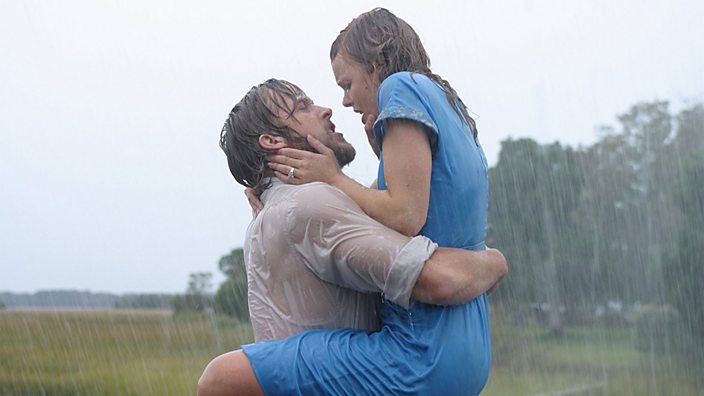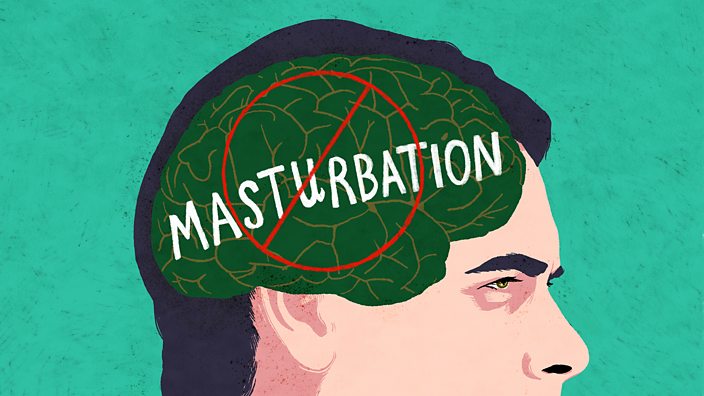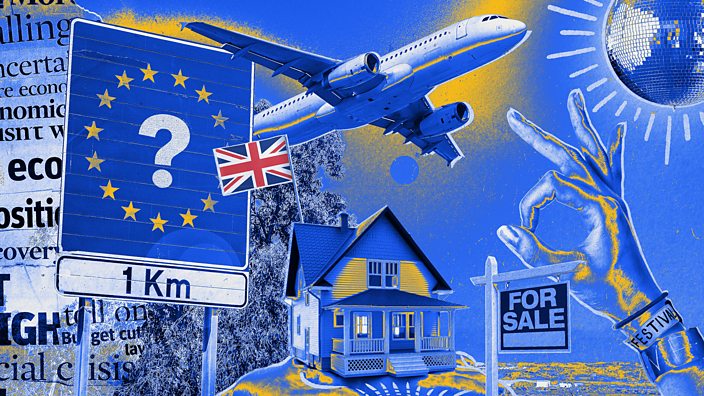 BBC Three / iStock
BBC Three / iStockThe truth about young people and Brexit
We reality check the whole shebang
The period of time before the European Union membership referendum was announced in 2015 will be known as 'BB' from here on in. That’s 'Before Brexit'. Can you even remember what life was like before the Great Scallop Wars of 2018, or before you got embroiled in debates with your mates about immigration?
It was a simpler time.
You could log on to social media for a mindless scroll without seeing a political rant, people were too busy nominating each other for the Ice Bucket Challenge to seriously worry about politics, and Pharrell Williams’ feel-good anthem Happy was the top track of the year, narrowly pipping other 'bangers' like Ed Sheeran’s Thinking Out Loud to the post.
How things have changed.
Now, politicians and journalists alike seem to speak solely in indecipherable jargon and acronyms which, even when they explain them, still don’t make much sense. We’re playing a nationwide game of Deal Or No Deal and it’s now only six months to go until our time is up – negotiations are due to end by 11pm on 29 of March 2019, when Britain is supposed to leave the EU with or without a deal.
And although ministers say that it’s most likely we will reach a deal with the EU by then, they are increasingly preparing for a ‘no deal’ scenario - which, depending on who you talk to is either totally fine (Jeremy Hunt/Boris Johnson) or tantamount to the apocalypse (Anna Soubry/Dominic Grieve).
Tempting as it is to make another Noel Edmonds joke, this is very serious and could affect, well, pretty much everything. Next March, the Government says we will either leave the EU with an agreement about how we disentangle ourselves during a 21 month 'transition period' or we will end up with no deal. In this case, everything could be up in the air - from flights between Britain and Europe, to imports and exports, and whether or not British people need visas to travel to Europe - and all the experts in the world can't tell us exactly what would happen.
Where do young people stand on Brexit?
One of the most annoying things about politics has to be the way that 'young people' get talked about as one giant homogenous group, as though we don’t have different concerns, opinions, hopes and dreams. Just as not all of us like Ed Sheeran, not all young people go to university and voted Remain because they care about being able to study abroad. In fact, only around half of us go into higher education. And if you’re a young person in Northern Ireland, you might be more worried about whether or not there’s going to be a physical border between you and the Republic of Ireland than you are about anything else.
On 23 June 2016, the UK voted to leave the EU by 51.9% to 48.1%. We hear a lot about how “young people want to stay in the EU,” and some do, but the truth is that not everyone eligible to vote showed up on the day in 2016. While 90% of over-65s turned out, only about 64% of 18-24 year-olds voted (and, of course, not all of those voted Remain).
However, it is true that the younger you are, the more likely you were to vote to stay in the EU – studies suggest just over 70% of 18-24 year-olds voted Remain, while just under 30% opted to vote Leave. The older you are, the more likely you were to vote Leave. So, it’s fair to say that on the whole, younger people were more pro-EU than their parents and grandparents – only 40% of those aged 65 and over supported Remain.
The latest data also suggests that young people would still be more likely than older people to vote to remain in the EU were there to be another referendum tomorrow.
In a nutshell, the UK is currently divided into the under-45s who, broadly, are in favour of staying in the EU, and the over 45s, who largely want out but it's just lazy to say "young people are all remainers because they want to be able to go to uni in the European Union" which is one of the most common arguments we hear.
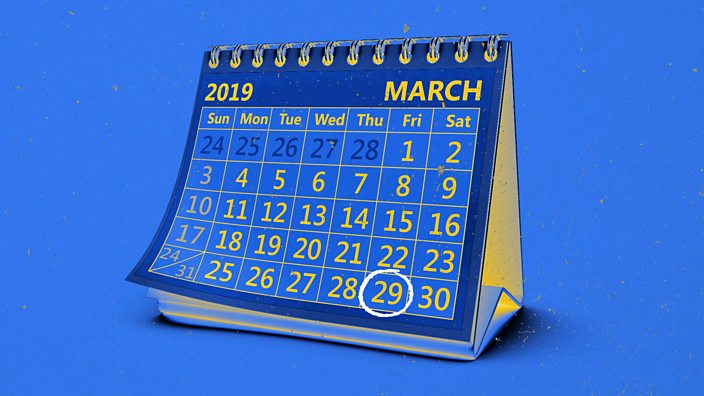 BBC Three / iStock
BBC Three / iStockSo, what does 'Brexit' mean, and what do young people need from politicians right now?
During the EU referendum campaign, there was a lot of talk about how Brexit would affect cheap European flights or studying abroad, but the truth is that it’s about a lot more than being able to get a 15 quid flight to Spain in a flash sale. If you’re in your mid-thirties or younger, a member of either Generation Z the group known as millennials, then your life probably looks quite different to your parents' or grandparents'.
For a start, you’re more likely to be renting than you are to own a home and your wages are likely to have suffered more because of the last 10 years of financial problems after the 2008 crash. You’re also less likely to say you’re “proud” to be English (if you live in England) and are more likely to think that immigration "enriches British life".
Some people fear that the Government is now so caught up on Brexit that they’re not giving enough attention to sorting out affordable housing or young people’s earnings.
Laura Gardiner is one of them. She is the Research Director of the Resolution Foundation – an organisation that won’t take sides on Brexit, but has published several reports looking at the cost of housing and the generational wealth gap.
She says that these issues, which are defining the lot of young people, were brewing long before Britain voted for Brexit, and shouldn’t be overlooked because of it. “It’s understandable that Brexit is dominating the current political debate,” Laura says. “But for many young people, core issues such as having more security at work, at home and in retirement, will have even more importance. Politicians from all parties need to understand that.”
Not everyone agrees, however. Steven Edington is 18 years old. He works for the pro-Brexit website Westmonster, and describes himself as an "optimistic Brexiteer". He says he has been a supporter of leaving the EU “for several years,” and isn’t worried about young people being overlooked in the Brexit negotiations.
In fact, while Steven accepts that “most young people voted Remain,” he thinks, “Brexit is an amazing opportunity for young people” because “it means we can sign free-trade deals around the world, reducing tariffs on consumer goods from phones to food, and making our hard-earned cash go even further.” After Brexit, he hopes issues like housing will get more attention because the Government could spend “the £10bn a year we currently send to the EU on young people's priorities, such as housing”. However, that's not currently Government policy.
To Laura’s point about wages, Steven says, “taking back control of our borders means the downward pressure on wages from low-skilled migration will cease and wages for young people can finally pick up.” However, it’s worth nothing that a major Government-commissioned report published only last week by the Migration Advisory Committee found that migrant workers from the EU don't actually have a massive impact on the wages of UK workers.
Ultimately, though, Steven is hopeful and says, “Brexit is not about closing off Britain from the rest of the world, but about expanding into new markets and for voters to have more say over our lives.”
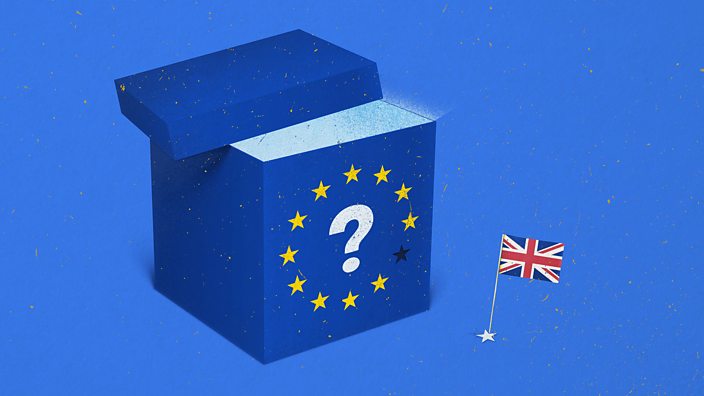 BBC Three / iStock
BBC Three / iStockIs Brexit really giving us Brexiety?
Some people think all of this uncertainty and debate is fuelling young people’s anxiety. Joe Levenson is the Director of Communications and Campaigns, Young Women’s Trust – an organisation that supports and represents women aged 16-30 struggling to live on low or no pay in England and Wales. He says that when the Young Women’s Trust asked young people what makes them anxious, “the most common responses were leaving the EU (42%), followed by worries about being able to buy a home in the future (41%) and their current financial position (37%). Half of them (47%) say they feel worried for the future."
Whether you voted Leave or Remain, the possible impact of Brexit could be keeping you up at night, lying awake and worrying about what the future holds for you. Perhaps that's why the possible impact of Brexit on your mental health was even discussed at an NHS conference earlier this year. Elisabetta Zanon, the director of the NHS’s European Office, wrote at the time that if “a climate of uncertainty” continues much longer it “could impact on the mental and physical health of people, potentially leading to an increase in demand of services”.
Is there even such a thing as 'a better Brexit'?
At the end of last year, a group of MPs from different political parties and with different views on Brexit (known as the All Party Parliamentary Group (APPG) for a Better Brexit for Young People) commissioned a report from the London School of Economics. In it, they tried to figure out what the best possible outcome for younger generations would be.
They found that one of young people’s main concerns was that Britain will become less tolerant and more racist after Brexit.
Stephen Kinnock MP, 48, is the chair of the APPG. He tells BBC Three that their research suggests that what young people really want above all else is to “preserve the strongest possible economic, scientific and cultural links between the UK and the EU”. He adds that, "a ‘no deal’, or ‘hard’ Brexit represents a major risk to the economy and therefore to young people’s life chances."
However, Conservative MP Andrew Rosindell, who sits alongside Kinnock as Vice Chair of the APPG, sees things slightly differently. He thinks it's important that we “fix the generational divide” in Britain because it is “causing widespread distrust and polarisation”. To do this, he says young people need to be involved in Brexit. “I believe the next generation should always have it better than the last,” he said when the group released its report at the end of 2017. "This is a great opportunity for young people to take charge of their future as we forge relationships around the world.”
Brexit means...?
As we approach the due date for our grand exit, one government department is particularly busy – The Department for Exiting the European Union (DExEU). Former Brexit Secretary David Davis once described his job as “running a set of projects" that make putting a man on the moon look simple. So, in an attempt to unpick all of this complexity, we put some questions about Brexit to their minister, Suella Braverman – who voted for Brexit herself - and we cross-checked them with our own BBC Reality Check team.
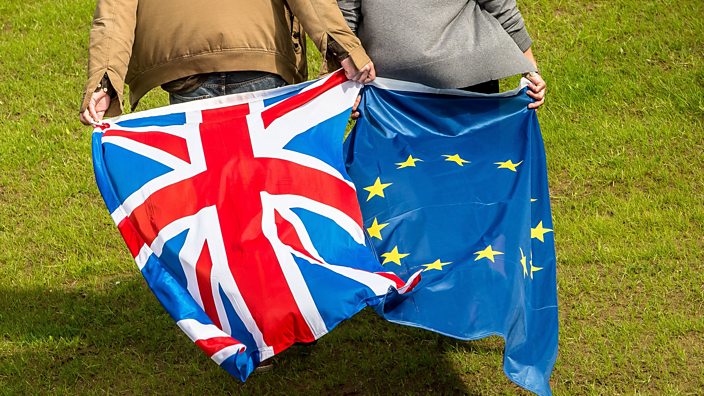 Getty
GettyBBC Three: Hi Suella, does Brexit really mean the end of cheap EU flights as some people are warning?
Suella Braverman: “Lots of people in the UK have benefited from cheap flights to Europe, as have Europeans flying here — so we're working hard to make sure that after Brexit, you still have access to lots of great flight options.”
Reality Check: “At the moment, the UK is part of an EU-wide agreement called the single aviation market. It means that any airline licensed by an EU country is allowed to operate any route within the EU, without needing advance permission to fly. If the UK leaves without a deal in March next year, airlines would lose this automatic right. The UK Government has said it would grant permission to EU airlines, but if the EU didn’t do the same, then there would be disruption to services. While uncertainty remains, airlines, like other businesses, are having to make plans. Ryanair, for example, is adding a 'Brexit clause' to all tickets sold for travel after 29 March; it’ll warn customers that the tickets may not be valid if there is disruption in the event of 'no deal' - and if flights don’t take place, the cost will be refunded."
So where are we? We don't really know...
BBC Three: How will Brexit affect those young people who do want to study abroad?
Suella Braverman: “Studying abroad is a great opportunity for many students and it's something we want to ensure continues. After we leave, one of the things we have proposed is a UK-EU cooperative accord on culture and education, which would make it possible for British and EU students to continue to visit and study at each other's universities. I lived in Paris and studied in Madrid, and they were great experiences where I learnt the language and made many new friends.”
Reality Check: "The EU-sponsored Erasmus scheme allows students to do part of their UK degree in another country which participates (that’s all the EU countries plus a few others like Norway and Iceland). In the future, after Brexit, the Government has said it would like to participate in Erasmus but that would be possible only through an agreement with the EU. At the moment, students can also study abroad under the EU’s freedom of movement policy (and in some countries you don’t get charged tuition fees – more info here).
"So, what about after Brexit? The UK and the EU have agreed in principle that any UK citizen who moves to study in another EU country before 29 March 2019 will keep the right to study on the same terms as that country’s own nationals (this also applies if a transition period takes place). Those who start their course in an EU country which does not charge any fees, before transition ends, will pay nothing even if their course continues after transition is over."
So where are we? For now there's an agreement in principle, but beyond the transition period we just can’t say...
BBC Three: We all know that young people in Britain are at the sharp end of the housing crisis – have you considered how Brexit will affect this?
Suella Braverman: “The key to making housing more affordable is to build more — that is why the Government is investing £9bn in affordable housing. Our Help to Buy scheme and the cut in Stamp Duty for first-time buyers are also helping people get on the property ladder. It’s great to see more people under-30 able to buy their own home”.
Reality Check: “It's true that there are schemes in place to help young house-hunters, but as it stands, only around 420,000 households have bought property through Help to Buy schemes - as opposed to the 4.7 million households that are privately renting.
"The cost of buying or renting a home is affected by lots of issues that were around long before the EU referendum was called. Mainly, these are that we don't have enough homes or social housing, the prohibitive cost of land, and that house prices and the cost of renting are rising faster than wages.
“A ‘no deal’ Brexit could affect the economy which, of course, means it could potentially affect housing costs one way or another."
So where are we? The truth is nobody knows exactly what will happen with so little Brexit detail decided.
BBC Three: There are claims that a no-deal Brexit will cause food costs to rise, and studies suggest that young people are worse off than other generations – what are you doing to protect us from food price rises?
Suella Braverman: “We've put forward suggestions to the EU on how we can continue to trade with each other in a way that doesn't involve extra checks and bureaucracy that could drive up food costs. Both the EU and the UK have said that they would like to see no tariffs (charges on imported goods) across all areas, including food. And crucially, only 30% of the food we eat is supplied from the EU”.
Reality Check: "This depends on what our future trading relationship with the EU is going to look like. We’re currently in something called the EU single market and the customs union – with agreed standards on food products and smooth trade flows. A looser trade relationship could lead to extra checks at borders and more red tape – which the minister acknowledges could drive up food costs.
"Some politicians who want that much looser relationship - a so-called 'clean Brexit' - say it would allow them to strike more trade deals with the rest of the world and lower tariffs on food from countries like the US or China. It could mean cheaper food, but it could also mean food with different safety and welfare standards (remember all that fuss about chlorine-washed chicken?), and some have argued that it could drive some UK food producers out of business."
So where are we? Depends what sort of deal we get TBH.
BBC Three: What about Prosecco - is it going to get more expensive?
Suella Braverman: “I hope not!”
Reality Check: "Alcohol that we import from the EU could get more expensive if the value of the pound falls compared to the value of the euro. Anyone who’s changed pounds into euros to go on holiday this summer will know that we aren't getting as much in return as we're used to. If the pound's value falls after Brexit, it would mean that goods we import from the EU, which includes booze like Prosecco, Cava and various other wines and beers, could become more expensive for a while."
So where are we? We will have to wait and see...
BBC Three: What does Brexit mean for my mate’s Italian boyfriend who is currently living in England with him? (Perhaps this is one for the Home Office…)
Immigration Minister Caroline Nokes: “Having a classmate, friend or colleague from an EU country is part of the daily lives of many young people in the UK today… that’s why our first Brexit priority was providing reassurance to more than 3 million EU citizens and their families who call the UK their home.
“We are making good progress in preparing for the introduction of the EU settlement scheme. This system will make it simple for EU citizens to continue to live and work in the UK, as well as have the same access to education, benefits and healthcare as they do now.”
Reality Check: "If the withdrawal agreement is approved and there’s a transition period from next year, then any EU citizen who’s here by the end of 2020 (when the transition is due to finish) should be able to stay and, once resident for five years, can apply for permanent settled status. This principle applies if there’s a withdrawal agreement - if there isn’t and the UK leaves with 'no deal', then Theresa May has said she would still guarantee the rights of EU citizens living here."
So where are we? You guessed it... we'll have to wait and see. Patience is a virtue.
 BBC Three / iStock
BBC Three / iStockAnd the answer is...
At this stage, nobody knows what Brexit really means because we don't have a deal. It’s difficult to say exactly what Brexit will mean for Britain’s younger generations until we have that deal or get to the point where it's clear that we aren't going to get one. The truth is that there’s still a lot that we don’t know or, rather, can’t know until it happens. As with any break-up, you can lie awake at night thinking about it - but you don’t know what your life will be like afterwards until you’ve cut the cord.
What’s for sure, though, is that the experts agree that there is a lot more at stake than the price of Prosecco and our freedom to go to Ibiza or Berghain - namely what the future holds for our wages, cost of living and the cost of housing.
Wait… so is there going to be another referendum or what?
Oh sorry, we almost forgot about this bit...
Ever since Britain voted to leave the EU, various campaign groups like People’s Vote have been calling for another referendum. It’s a conversation that keeps coming back, like a song stuck in your head. And, in the last few days, it has got louder and louder.
The Government’s official position is that there will not be another referendum, no matter what.
However, many Labour party members would like another referendum and Keir Starmer, the Shadow Secretary for Brexit, has made sure the option to remain in the EU is still on the table.
Jeremy Corbyn himself has always insisted that the original referendum result should be respected, and he would rather have another general election so he could try and negotiate a different Brexit.
Not a huge amount to figure out before next March, then...
